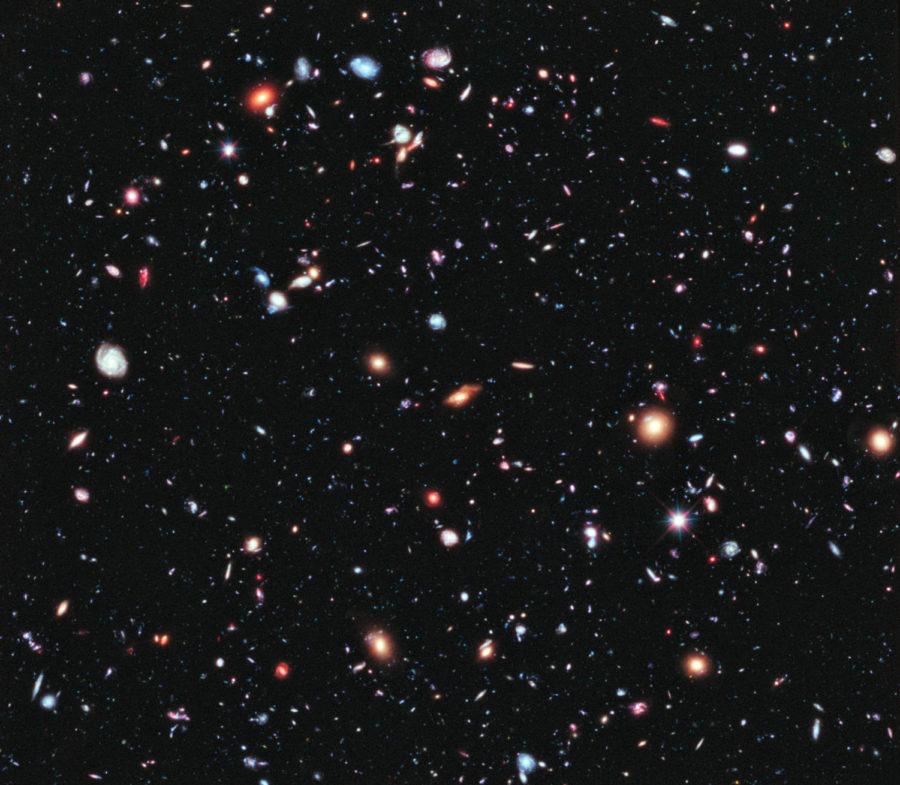Timberlake: We are not alone
Opinion: Timberlake 11/15
November 15, 2012
The anatomical Homo sapiens has been walking Earth for nearly a quarter of a million years. On a 24-hour clock we came about roughly at 23:58:43 in comparison to the age of Earth. Not until 500 B.C. did Pythagoras claim that Earth was not flat and nearly 1,000 years later, 450 years ago, the telescope was invented. I was alive when America’s first optical telescope, Hubble, was sent into space. To say we know much about what lies within the confines of our universe is to be dense.
I have always found it intriguing that humans have maintained a highly egocentric view of ourselves. Always convinced that the greatest city lay at the “center of Earth.” Always convinced that the sun and planets revolved around us. Always convinced that we were at the center of all stars in the galaxy. Always convinced that we had someone watching over our particular planet, our particular species, and that we were the only living organisms, let alone “intellectuals,” in the universe.
How humbling it is to lay on a grassy hilltop staring into a deep, dark sky, knowing that we are one of a handful of minor planets revolving around an average star, one of the over quarter trillion (with a “T”) estimated stars in the Milky Way with likely more than that in planets.
While knowing that there are roughly the same number of galaxies in the universe as there are stars in the Milky Way, how can one remotely claim to believe that Earth is the only harbinger of life? I haven’t even begun to talk about the age of the universe.
It is because of the Hubble Space Telescope that we know the universe to be 13.72 billion years old, humans existing with telescopes for 3.28 millionths of a percent of that existence. Countless stars and planets have been born and died off before Earth was even formed, all with the potential chance to hold the conditions for life to arise.
The odds are ever stacked in favor for life to exist elsewhere in the universe. With a symbolically infinite number of places for life to arise and do so in less than a billion years (in Earth’s example) — there can only be one answer as far as I am concerned.
We are not alone.
Chemically, there really isn’t anything special about us. We are made of water and carbon mostly. Hydrogen, oxygen and carbon are among the most abundant elements in the universe — carbon having more combinations than any other element combined. Ranking order of abundance of elements in the universe to that of humans, you find they match up perfectly, all elements having been forged in the creation and destruction of stars.
“We are star stuff,” as the late and great Carl Sagan put it.
If you are not familiar with the Hubble photo called “Ultra Deep Field,” I highly recommend you look it up. This was a photo taken by Hubble after we pointed it in a very dark area of the sky for a long time. The result was nearly 10,000 individual galaxies and only a handful of lone stars in the foreground. If you were to hold the hole of a threading needle up into the night sky, everything that falls within “Ultra Deep Field” fits inside that eye of the needle.
Here’s the catch. We know that it takes time for light to travel a distance, and we know how far away those galaxies are (13 billion light years), which means we are essentially looking back in time to galaxies and stars that don’t exist anymore. At any point in time, one of the solar systems within one of those galaxies could have held the right conditions for life to rise. These systems, having long been destroyed, could have been replaced with new systems with completely new conditions to bear chance for life to grab hold.
Extraterrestrial life in the universe is inevitable with these sorts of odds.
Do I believe we have been visited by aliens? No. In a follow-up column I will talk about what I believe to be the implications of such an encounter.







